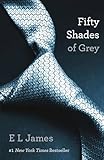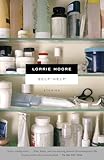In 2018, the phenomenon of the magazine “agony aunt” might strike as an outdated relic. Within a climate where reactions and opinions to our most prosaic problems can be conjugated instantly via a parade of always-on messaging apps, “writing in” to a sagacious stranger to solicit thoughts seems quaint; a symptom of a more considered time where distance and perspective were esteemed above the restless tumult of the now.
Heather Havrilesky—the long-standing respondent of The Cut’s popular “Dear Polly” column—accounts for this moment of insatiable communication at the cost of actual connection in her third book, What if This Were Enough? She updates the columnist’s stock Q&A format with a collection of more roving, labile essays. Not quite venturing “advice” per se, but brimming with the author’s warmly diagnostic and incisive voice, the pieces crystallize as potent blends of cultural critique, memoir, and anecdote, which take a scalpel to the inured surface of modern American life.
 Havrilesky’s second book, How to Be a Person in the World, which anthologized a selection of her column’s most insightful questions and responses, was conspicuously more sure-footed in tracing a path for how to navigate the strains of self-actualization. As its title signals, What if This Were Enough? is more hesitant and querulous in tone: less eager to lure readers, in this turbulent administration, with packaged certainties or digestible truths. At the same time, the book doesn’t shirk from the fact that in a late capitalist context, “There’s not much understanding in store for those who hesitate, change their minds, falter.” “Success” is found instead in strict, unwavering fidelity to a “chosen path”; or what the author laments as the dubious, anxiety-infected temples of your “best life” or “your truth.”
Havrilesky’s second book, How to Be a Person in the World, which anthologized a selection of her column’s most insightful questions and responses, was conspicuously more sure-footed in tracing a path for how to navigate the strains of self-actualization. As its title signals, What if This Were Enough? is more hesitant and querulous in tone: less eager to lure readers, in this turbulent administration, with packaged certainties or digestible truths. At the same time, the book doesn’t shirk from the fact that in a late capitalist context, “There’s not much understanding in store for those who hesitate, change their minds, falter.” “Success” is found instead in strict, unwavering fidelity to a “chosen path”; or what the author laments as the dubious, anxiety-infected temples of your “best life” or “your truth.”
 Always briskly observant, and often mordantly funny, the topics of these 19 chiseled pieces range from an excavation of the blunt hypocrisies of Disney World, “a carefully honed feat of interactive advertising”; to the “callow” premise of the Fifty Shades trilogy, “late capitalist fairy tales that double as sexual daydreams”; to a meditation on the fragile state of the modern girl, “a delicate glass vase, waiting to be broken.” An essay wryly titled “Delusion at the Gastropub” unapologetically eviscerates the polarized and class-segmented food culture in America, which reifies “rabbit larb and Japanese uni” at one end of the spectrum yet feeds the masses on “a wasteland of over processed, cheap and empty grub” at the other, making neurotic, conspicuous consumers of us all.
Always briskly observant, and often mordantly funny, the topics of these 19 chiseled pieces range from an excavation of the blunt hypocrisies of Disney World, “a carefully honed feat of interactive advertising”; to the “callow” premise of the Fifty Shades trilogy, “late capitalist fairy tales that double as sexual daydreams”; to a meditation on the fragile state of the modern girl, “a delicate glass vase, waiting to be broken.” An essay wryly titled “Delusion at the Gastropub” unapologetically eviscerates the polarized and class-segmented food culture in America, which reifies “rabbit larb and Japanese uni” at one end of the spectrum yet feeds the masses on “a wasteland of over processed, cheap and empty grub” at the other, making neurotic, conspicuous consumers of us all.
 In addition to these flinty shards of cultural critique, autobiographical vignettes peer into Havrilesky’s family and marriage, which allow the author to expand her voice beyond her Polly avatar (“Playing House,” “Stuffed,” “True Romance”). More universal manifestos for women and their sense of worthiness and self-esteem more broadly also feature (“Bravado” effortlessly trumps the fatigued tropes of most Ted Talk scripts). Perhaps Havrilesky’s greatest strength of all, however, is her talent in distilling the specific grain of “the contemporary.” Much of the pleasure in reading her is derived from shivers of abrupt recognition: that Crossfit is kind of bullshit, actually; or that the dutiful quotidian imbibing of probiotics or “decaf coffee drinks” won’t “whisk away” the absence of an inner life (or what Joan Didion, in an essay in the volume Slouching Towards Bethlehem, famously defined as “self-respect”).
In addition to these flinty shards of cultural critique, autobiographical vignettes peer into Havrilesky’s family and marriage, which allow the author to expand her voice beyond her Polly avatar (“Playing House,” “Stuffed,” “True Romance”). More universal manifestos for women and their sense of worthiness and self-esteem more broadly also feature (“Bravado” effortlessly trumps the fatigued tropes of most Ted Talk scripts). Perhaps Havrilesky’s greatest strength of all, however, is her talent in distilling the specific grain of “the contemporary.” Much of the pleasure in reading her is derived from shivers of abrupt recognition: that Crossfit is kind of bullshit, actually; or that the dutiful quotidian imbibing of probiotics or “decaf coffee drinks” won’t “whisk away” the absence of an inner life (or what Joan Didion, in an essay in the volume Slouching Towards Bethlehem, famously defined as “self-respect”).
With a view toward interior integrity—what her first book called “all the magic inside of ourselves”—one of What if This Were Enough’s key messages is that in these over-stimulated times, we must carve out space to “step back” and observe what isn’t good for us, or to claim time for “quiet wandering” out of the exhausting frame of “events and sounds and messages that have nothing to do with where you are.” This is most successfully exhorted in an essay called “Lost Treasure,” which recounts an old childhood friend of the author’s mother taking frequent three-hour walks to amass “aimless junk,” which she would later fashion into crafted artifacts, proudly displayed in her eccentric home. Though spliced with Havrilesky’s typical irreverent admissions—“When I go on walks these days, I listen to podcasts and answer texts and make phone calls and listen to Kendrick Lamar”—the serene state that “Lost Treasure” ultimately ends up counseling feels a little too abstracted, idealistic. Disconnecting and “tuning in on what’s around you” depends on certain material bolsters and secure coordinates, i.e., a baseline sense of privilege.
The acknowledgment, in a later essay called “The Popularity Context,” of Havrilesky’s moderate and vaguely out-of-character Twitter addiction—that she likes to “look at her numbers” and attend to the “illusion of a waiting audience”—is therefore gratefully received. It is more in line with the book at large’s ode to “the miracle of the mundane” and the “off-kilter,” chaotic, often contradictory experience of being human. Obsessive shuttling toward being better, more “authentic,” or more abundant, Harvilesky warns, overwrites the stilling peace that can be found in straightforward acceptance: that one may indeed have spent an hour lost in a social media vortex, and, so long as such an act is generative as opposed to “numbing,” then that is, imperfectly, OK.
 In a short story simply titled “How,” from her 1985 collection, Self Help, Lorrie Moore writes, of the quietly spreading malaise that typifies contemporary adult life, “It hits you more insistently. A restlessness. A virus of discontent.”
In a short story simply titled “How,” from her 1985 collection, Self Help, Lorrie Moore writes, of the quietly spreading malaise that typifies contemporary adult life, “It hits you more insistently. A restlessness. A virus of discontent.”
Today, that virus has spread so capaciously that to “go viral,” or to have your online life eclipse the imprint of your existence IRL is often held up as a way of being ultimately present, more connected and more alive. In What if This Were Enough? Havrilesky’s “answer” (for she retains some sketches of the columnist) to the problem of the now is the intentional “savoring” of the present (whether it be currently experienced online or in a forest, culling twigs) or the mantra that “This is exactly how it should be,” despite the pressures of the perfect, winningly on-brand people in our heads. It is glued together with the awkward bonds of everyday life, or with the rote “rhythms of survival”—attending children’s birthday parties, getting car checkups, watching reality TV—which hopefully encompass other people but sometimes don’t. The most visceral question, in the end, is whether we can sit down with ourselves amidst all the clutter. Yet instead of telling us to “streamline our message” or to excise everything in life that does not unilaterally “spark joy,” Havrilesky’s most resonant piece of advice is also her most simple: Let it all in.
The post How a Person Shouldn’t Have to Be: On Heather Havrilesky’s ‘What if This Were Enough?’ appeared first on The Millions.
from The Millions https://ift.tt/2z9YjIK
Comments
Post a Comment